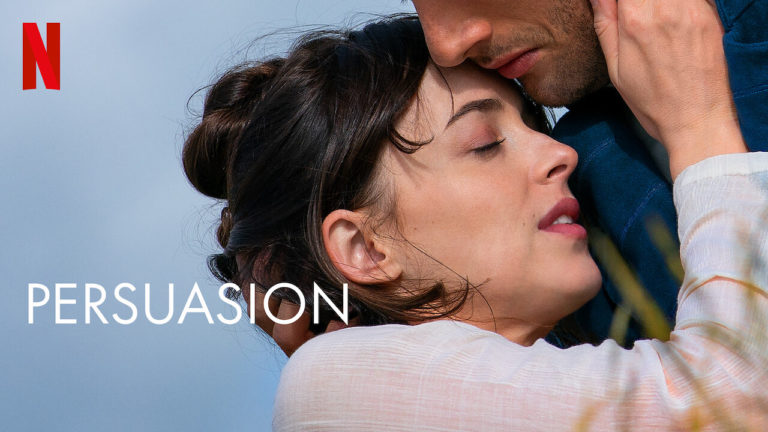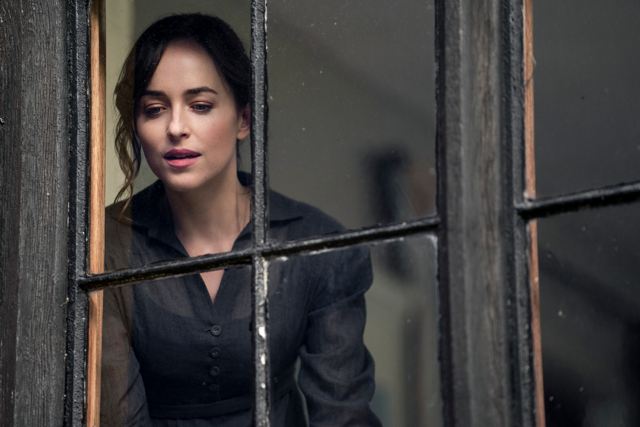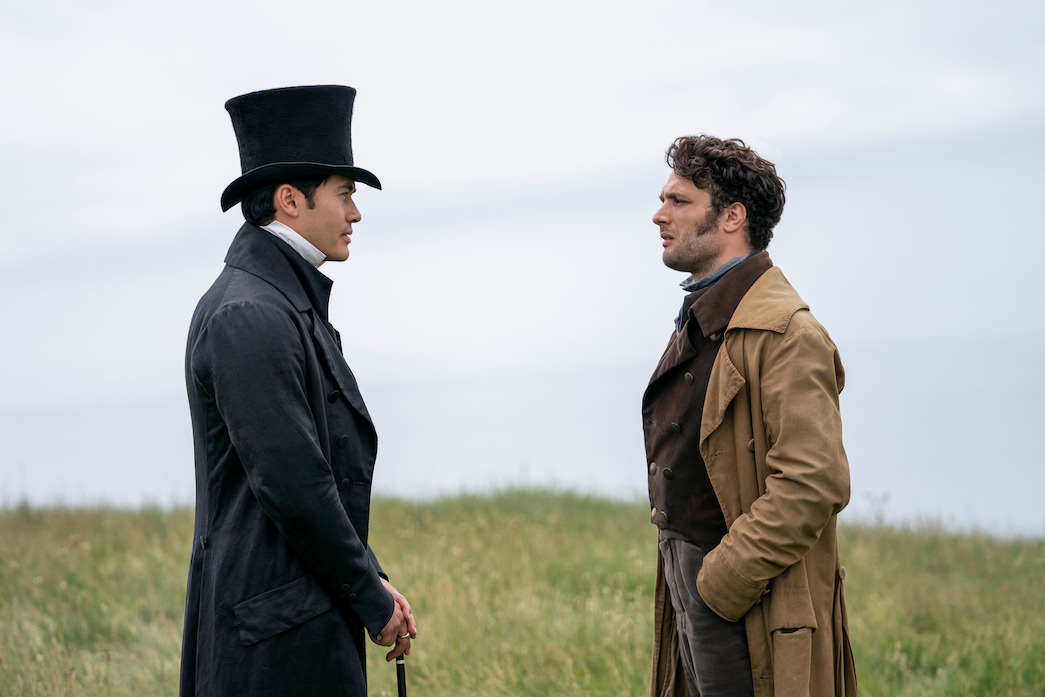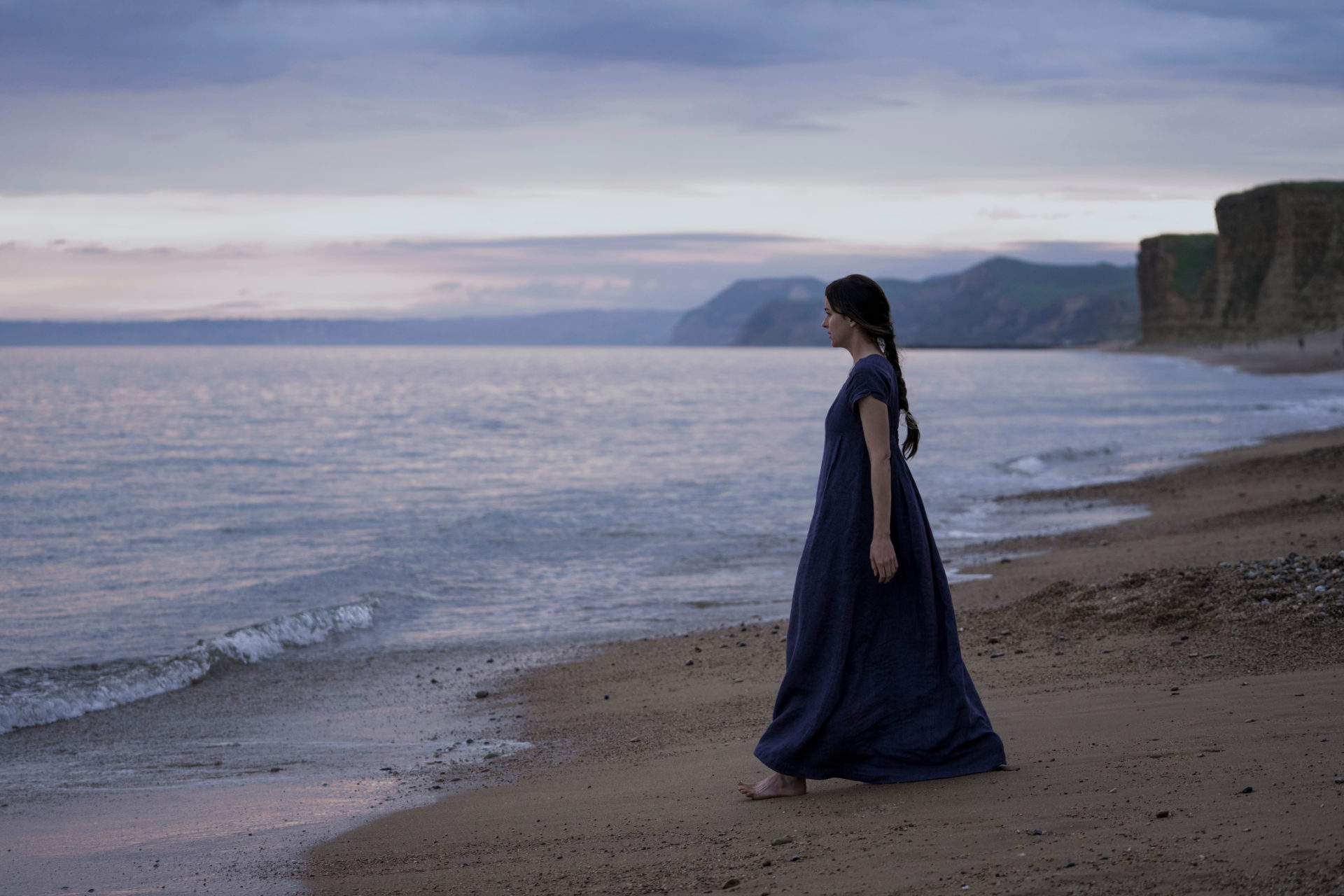
The sixth and last completed novel by Jane Austen, Persuasion, was published in 1817 with readers being introduced to her most emancipated female of the Regency Era: Anne Elliot. This work, that was published posthumously, is considered the one to have the most modern approach for the way it questions traditional beliefs and shifts attitude towards inherited wealth and rank.
There have been several adaptations of Jane Austen’s publication, from the 2010 musical drama, to BBC’s miniseries in 1960, and even a radio serial in 1986 for BBC Radio. In 2022, Persuasion has conquered the world of streaming with Netflix’s film by British theatre director Carrie Cracknell. The independent spirit of Anne is brought to life by the captivating Dakota Johnson. She intensely, yet effortlessly, portrays what it means to be the middle daughter of narcissistic and extravagant baronet, Sir Walter Elliot (Richard E. Grant) of Kellynch Hall.

Her tale is a current liberation cry. It begins with a cage of long-established practices to break free from. Anne is nineteen years old when she falls in love with Frederick Wentworth (Cosmo Jarvis) and is “Persuaded to give him up” because the promising young lieutenant in the Royal Navy is a commoner without fortune. The years roll by, but she never ceases to love him, and they meet again. Nevertheless she adamantly tries to convince herself she can do without love, until another suitor comes along, a distant cousin: William Elliot (Henry Golding), heir presumptive of Sir Walter who will reveal himself to be a cold, calculating opportunist.
The sensitive and altruistic Anne finds herself in a whirlwind of circumstances where she attentively tends to others, from her eldest sister Elizabeth (Yolanda Kettle) to Mary (Mia McKenna-Bruce) the youngest; from her sisters-in-law Louisa Musgrove (Nia Towle) and Henrietta Musgrove (Izuka Hoyle), to the family friend Lady Russell (Nikki Amuka-Bird).
Carrie Cracknell follows Bridgerton’s lead in re-writing history by casting actors of colour and Asian descent in the roles of British aristocrats, and she further modernises the storytelling by breaking the fourth wall. Anne often looks at the camera, and speaks directly to the audience anticipating what her family members might say, creating a sense of complicity. This seems to mirror the way the author of the book utilised free indirect discourse to express the intimate subjectivity of its characters.

In these regards spectators follow the film through Anne’s perspective and empathise with her coming-of-age. They observe her as she often pets a bunny, as if she wanted to take hold of her descent down the rabbit hole of a sentimental education. Another effective subtext can be perceived within the locations that arise in the story, like the celebrated White Hart Inn, that in folklore is associated with Herne the Hunter. The old English tale is about a spectre that haunted Windsor Forest, who represents the chaos that knights would have to overcome to pursue a quest just like the challenges confronted by our heroine Anne Elliot.
Within the film language gets remodelled to 21st century expressions, as Anne discusses being “single,” having “exes,” and men “being a 10.” However our protagonist-narrator still possesses the early 19th century lingo as she quotes Lord Byron’s The Giaour or utilises naval terms that were in use at the time, like “frigate,” “sloop,” and “sextant.”
Cracknell’s Persuasion, comes across as a cinematic manifesto of today’s empowered women, who need not fear being uncoupled. She declares with conviction: “A woman without a husband is not a problem to be solved,” and “Why must everyone assume that all women want is to be chosen by an eligible bachelor?” At the same time she is a woman who wants love in her life. Through her quiet dignity and ability to endure separation, she creates a shield to conceal the heartache of love loss. In her late twenties, when society labels her as a spinster, she looks back on her early youth and ponders upon the passing of time: “Nobody tells you when you’re young that life keeps going. It keeps going whether you approve of the progression or not. And eventually you find yourself wondering ‘How did I end up here?’’”

She acknowledges how “Time makes many changes,” and despite her fortitude in being unmarried Anne emphasises how women have difficulty in letting go of romance: “We women do not forget you so soon, as you forget us. Women love beyond all sensible limits. We cannot help ourselves. The only privilege I claim for my sex is that of loving longest. Loving ever when hope is gone. Loving because you don’t have a chance.”
Throughout this Bildungsroman, Jane Austen in unison with Carrie Cracknell do not fail to provide the expected happy ending, but not before clarifying the various nuances of partnerships. As Anne enlightens us on the notes of Birdy’s Song Quietly Yours: “For some, the right partnership can be a lucrative endeavour. For others, true connection is reward enough. It’s ok to find love on your own terms however unorthodox. Don’t let anyone tell you how to live or who to love.”
Final Grade: B+

